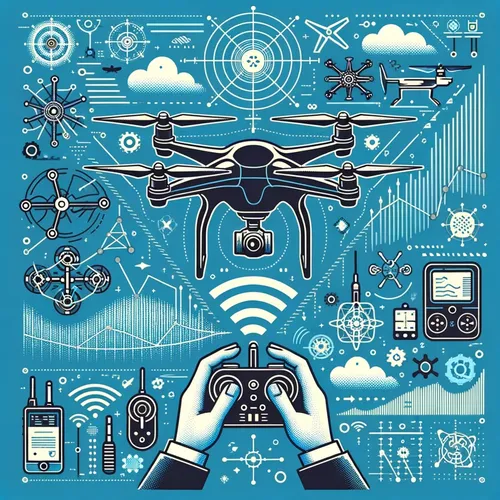Drones Soar, Businesses Score: Insider Secrets Revealed!
- Author
- Quiet. Please
- Published
- Mon 17 Mar 2025
- Episode Link
- https://www.spreaker.com/episode/drones-soar-businesses-score-insider-secrets-revealed--64930463
This is you Commercial Drone Tech: Enterprise UAV Solutions podcast.
As we approach March 18, 2025, the commercial drone technology sector continues to evolve rapidly, offering robust enterprise UAV solutions that cater to various industries. The integration of drones into business operations has proven to be a game-changer, particularly in sectors such as construction, agriculture, energy, and infrastructure inspection.
Industry-specific use cases have shown significant returns on investment. In construction, drones equipped with LiDAR technology provide detailed topographical maps, reducing survey times and costs by up to 80%. Agriculture has seen a 20% increase in crop yields through drone-assisted precision farming techniques. Energy companies report a 50% reduction in inspection time for solar farms and wind turbines, while infrastructure inspection costs have decreased by 30% across the board.
Effective enterprise drone fleet management is crucial for scaling operations. Platforms like Auterion and Azuga offer comprehensive solutions that include smart fleet management, compliance tools, and streamlined data workflows. These systems enable businesses to manage diverse fleets, track maintenance schedules, and ensure regulatory compliance, all from a single interface.
Integration with existing business systems is a key consideration. Companies like Drone Nerds Enterprise provide custom UAV solutions that can be integrated with various payloads and sensors, allowing for seamless data transfer and analysis. This integration has led to a 40% improvement in overall operational efficiency for early adopters.
Compliance and security considerations remain paramount. The use of NDAA-compliant drones and adherence to regulations such as FAA's Part 107 are essential for ensuring legal and safe operations. Recent developments in blockchain technology are being applied to drone data management, enhancing security and traceability.
Hardware and software solutions continue to advance. The development of drone docking stations for automated battery-swapping and ongoing flight is a significant innovation, enabling longer mission times and reduced downtime. AI-powered flight planning and obstacle avoidance systems are becoming standard features, improving safety and efficiency.
Training and implementation strategies are critical for successful drone integration. Companies are investing in comprehensive training programs, including virtual reality simulations and hands-on workshops, to ensure pilots and operators are well-prepared for real-world scenarios.
In recent news, Skydio has announced a partnership with Microsoft to integrate Azure AI services into their autonomous drones, promising enhanced data processing capabilities. Additionally, DJI has unveiled a new enterprise-grade drone with a 1-hour flight time, addressing the need for extended operations in industrial settings.
Looking ahead, the commercial drone market is projected to reach $58.4 billion by 2026, with a compound annual growth rate of 16.4%. Future trends point towards increased autonomy, swarm technology for coordinated missions, and the integration of 5G connectivity for real-time data transmission and control.
As we move further into 2025, it's clear that enterprise UAV solutions will continue to transform industries, driving innovation and efficiency across the board. Businesses looking to stay competitive should consider evaluating their current operations and exploring how drone technology can be integrated to enhance productivity and reduce costs.
For more http://www.quietplease.ai
Get the best deals https://amzn.to/3ODvOta
